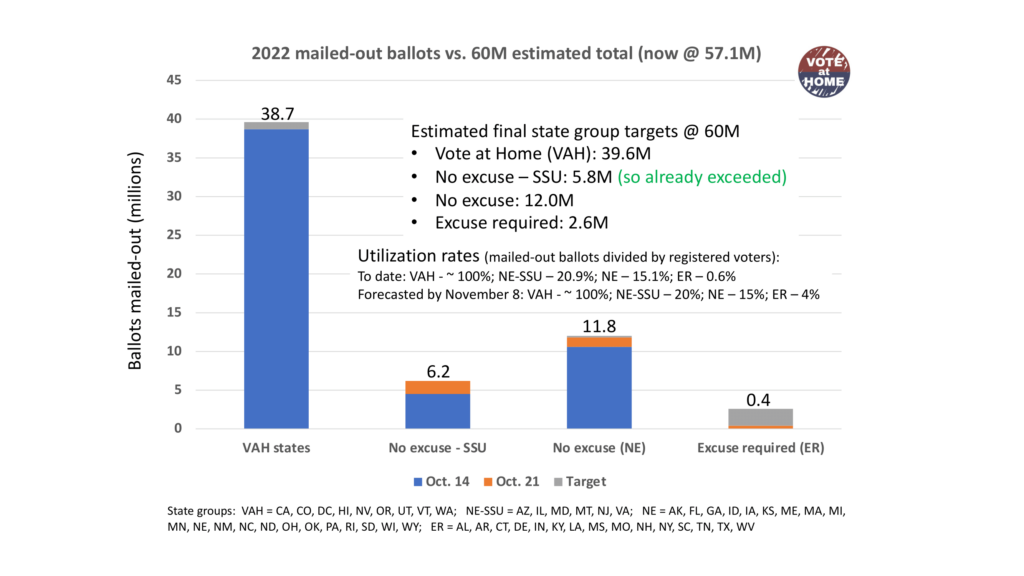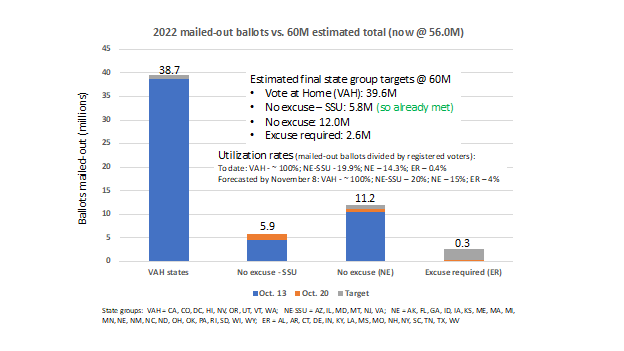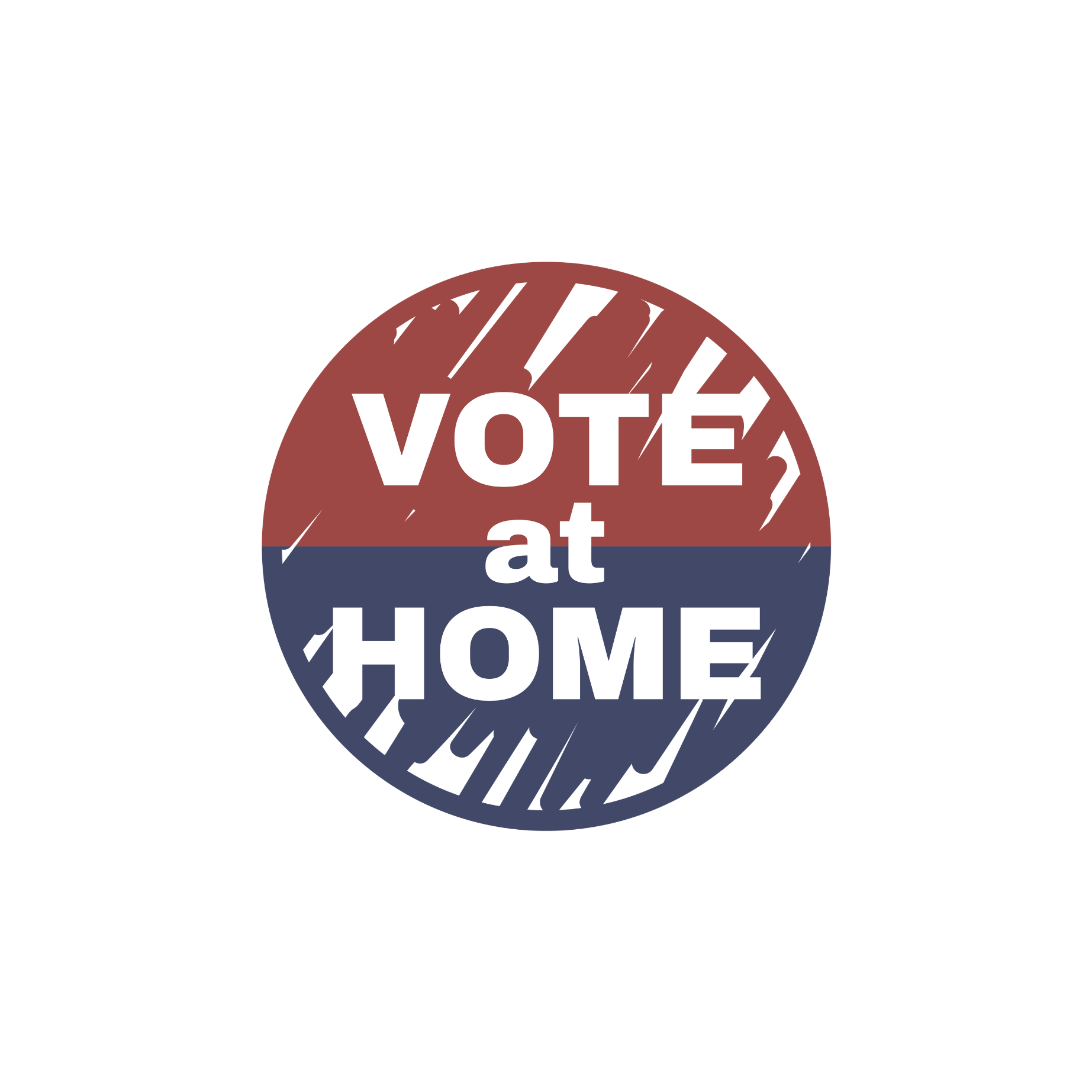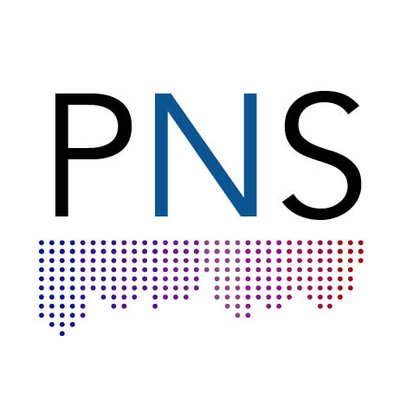Every two years, political pundits sift through party primary election results, speculating as to whether a red wave or a blue wave is coming ashore in November. With the 2022 primary season now over, a far more important wave is staring us right in the face.
The Paper Wave.
This Paper Wave involves mailed-out ballots – and specifically, the dramatic differences in voter turnout that occurred under the three very different policy frameworks U.S. states currently use.
First, in primarily “Vote at Home” (VAH) states, ballots are automatically mailed to most or all active registered voters.
Second, there are the nation’s “No Excuse” states, where mailed-out ballots are available to any voter who requests one.
Third, roughly a dozen “Excuse Required” states still cling to an outdated notion that voters should be treated as truant schoolchildren, needing a note from a parent or doctor to have their ballot mailed to them.
The 2022 “Paper Wave” is dramatically captured by the wide variance in 2022 primary election voter turnout rates, as calculated by NVAHI based on state-reported vote totals and registered voter counts.
- Vote at Home states’ turnout average: 35%
- No Excuse states’ turnout average: 26%
- Excuse Required states’ turnout average: 19%
Primary contests can certainly vary state-to-state in terms of their national importance and local intensity. For example, 2022’s two highest turnout states were Wyoming with its “Liz Cheney referendum” election (63%); and Kansas with its abortion rights ballot measure (48%).
But absent these two contests, the “Top 10” list for primary election turnout included seven of the nation’s eight VAH states. Even relatively dull primaries in VAH states – e.g, Hawaii and Washington state, both at 40% — far exceeded turnout in states like Ohio (21%), Texas (19%) and New York (11%).
Meanwhile, seven of the bottom 10 states were “Excuse Required,” in which fewer than one in five registered voters participated.
The power of the Paper Wave is simply this: voters with a ballot in their hands vote at materially higher levels than those who must schlep to a physical polling place. And this phenomenon repeats even within No Excuse states that still require voters to apply for their mailed-out ballots.
For example:
In Florida, 42% of voters who received a mailed-out ballot returned them, compared to a 19% turnout rate among the remaining polling place voters. Among Maryland voters, the differential was three times that: 64% vs. 19%.
Michigan was more impressive still: an 84% return rate among mail-ballot voters versus 13%, a sixfold difference. Half of all votes cast in Michigan’s 2022 primary came from mailed-out ballots – compared to just 27% in the 2018 midterms.
Then there’s Nebraska, with its “one-of-a-kind” law that gives certain counties the legal authority to automatically mail ballots to all active registered voters. The 11 counties that chose this approach in 2022 had a 55% turnout — compared to the rest of the state at 34%.
One more side-by-side comparison is instructive. For 2022, both Massachusetts and Rhode Island moved to a “no excuse” policy for mail ballots. But Massachusetts’ new law also directed the secretary of state to mail a ballot application form to all registered voters.
Nearly 1 in 6 Massachusetts voters — just over 700,000 – signed up. And about 69% of them returned their primary ballots, versus a 14% turnout rate among remaining polling place voters.
Rhode Island legislators didn’t require mailing out applications – and under 3% of its voters requested mail ballots for its primary. Even so, 77% of those voters cast ballots, versus 17% of the remaining polling place voters.
To be sure, voters in No Excuse states who request a mailed-out ballot in advance are arguably “more motivated” to vote. But that hardly accounts in full for three times – much less six times – differences in turnout. Not to mention the notably high turnout in states where all voters automatically received such ballots, with no application required.
Now that the “Paper Wave” primary season of 2022 is behind us, an obvious question presents itself. How much more “hidden in plain sight” evidence is needed to recognize that when mail ballots are made far accessible – if not a “given” prior to every election – that the real winners are American voters and our democracy?











